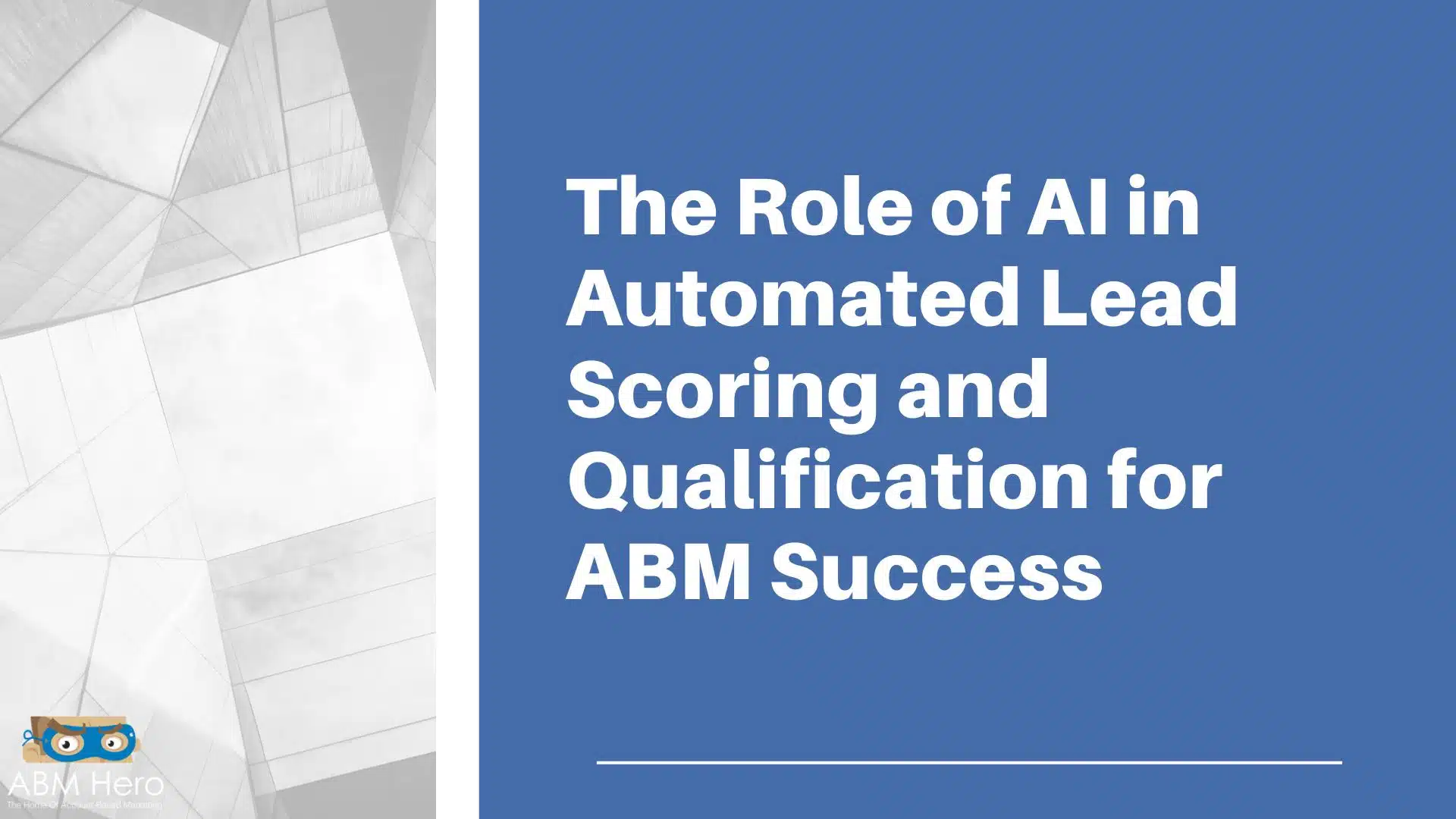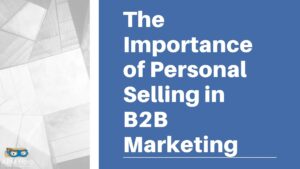Now that the B2B world is innovating rapidly, more decision-makers are looking for ways to streamline their processes and achieve efficiency without losing that unique human touch.
One area that has seen significant advancements is lead scoring and qualification for account-based marketing (ABM).
With the help of artificial intelligence (AI), organizations can pre-program lead scoring and qualification, ensuring that only the most qualified leads are endorsed to the sales team.
In this blog post, we will explore the role of AI in automated lead scoring and qualification for ABM success.
We will discuss the benefits of using AI for lead scoring and qualification, the various AI technologies available, and how businesses can implement these solutions to improve their ABM strategies.
So, let’s tackle and discover how AI can help businesses achieve their ABM goals.
The Importance of Lead Scoring and Qualification in ABM
Lead scoring and qualification are crucial to the success of Account-Based Marketing (ABM) strategies.
ABM focuses on targeting high-value accounts and personalizing marketing efforts to engage key decision-makers within those accounts.
By effectively scoring and qualifying leads, businesses can optimize their marketing and sales efforts, improve conversion rates, and maximize the return on investment (ROI) of their ABM campaigns.
Lead scoring involves assigning a numerical value or score to each lead based on various criteria, such as demographics, firmographics, engagement level, and behavioral data.
This scoring system helps prioritize leads and identify those with the highest conversion or revenue generation potential.
On the other hand, lead qualification involves determining whether a lead meets specific criteria, such as budget, authority, need, and timeline (BANT). It helps identify leads ready to move forward in the sales process.
Consider a software company that offers a project management tool for enterprise clients.
They receive a lead from a potential customer interested in their product. To qualify this lead using the BANT framework:
Budget: The sales team must determine if the lead has the financial resources to purchase their software. They can ask questions like:
- What is your allocated budget for project management tools?
- Have you previously invested in similar software?
Authority: It is important to identify if the lead has the decision-making power within the organization. The sales team can inquire about the following:
- Are you the primary decision-maker for implementing project management tools?
- Who else is involved in the decision-making process?
Need: The sales team should assess if the lead genuinely needs their software. They can explore:
- What pain points or challenges are you currently facing with your project management processes?
- How would implementing a project management tool benefit your organization?
Timeline: Understanding the lead’s timeline helps determine their urgency and readiness to implement a solution. Relevant questions could be:
- When do you plan to implement a new project management tool?
- Are there any specific deadlines or milestones that require immediate attention?
The sales team can assess the lead’s potential as a qualified opportunity by evaluating the lead’s responses to these BANT criteria.
If the lead meets the budget, authority, need, and timeline criteria, they are more likely to be considered a qualified lead that warrants further engagement and investment of sales resources.
Bottlenecks in Traditional Lead Scoring
Manual lead scoring and qualification processes in B2B marketing present several challenges hindering efficiency and effectiveness. Here is an overview of these challenges:
Subjectivity and Inconsistency
Manual lead scoring and qualification are prone to subjectivity and inconsistencies due to variations in individual interpretations and biases. Different team members may assign other scores or criteria weights, leading to discrepancies in lead prioritization.
Imagine a sales team that manually scores leads based on their perceived potential.
Team members might assign different scores to the same lead based on their judgment, resulting in consistent lead prioritization.
Time and Resource Intensive
Manual lead scoring and qualification processes require significant time and resources from the sales and marketing teams.
Analyzing and assessing each lead manually can take time and effort, diverting valuable resources from critical tasks such as engaging with prospects or developing strategic marketing campaigns.
Consider a marketing team that manually reviews, and scores leads for several hours daily.
This time-consuming process can limit their ability to focus on nurturing leads or engaging in strategic marketing initiatives.
Limited Scalability
Manual lead scoring and qualification are not easily scalable. As the volume of leads increases, it becomes increasingly challenging for teams to handle the process manually.
Scaling up the process by adding more team members can further exacerbate issues of subjectivity and consistency. For example, a rapidly growing startup generates a high volume of leads.
The existing sales team needs help to manually evaluate and qualify each lead, leading to delays in response times and potential missed opportunities.
Inability to Handle Complex Data
Manual processes often need help to handle the vast data available for lead scoring and qualification.
Traditional methods may need to analyze and extract insights from various data sources, including online behavior, engagement metrics, and customer interactions.
Example: A company tracks lead engagement across multiple channels, such as website visits, email opens, and social media interactions.
Manually aggregating and analyzing this data to derive meaningful insights and scores for each lead can be challenging and prone to human errors.
Limited Predictive Capabilities
Manual lead scoring and qualification typically need more robust predictive capabilities.
Leveraging historical data and patterns to accurately predict the likelihood of lead conversion or success becomes challenging.
Example: A sales team manually scores leads based on their initial contact and essential information without considering historical data on lead behavior and past conversions.
This leads to suboptimal lead prioritization and missed opportunities for targeted engagement.
From the points above, manual lead scoring and qualification suffer from subjectivity, inconsistency, scalability limitations, difficulty handling complex data, and limited predictive capabilities.
These challenges can impact lead management processes’ efficiency, accuracy, and scalability. Transitioning to AI-powered automated lead scoring and qualification can help overcome these limitations and drive better results in B2B marketing efforts.
How AI Brings Value to Lead Scoring Efforts
With the advent of artificial intelligence (AI), lead scoring and qualification processes have become more efficient, accurate, and scalable. AI brings several key advantages to the table:
Enhanced Accuracy: AI algorithms can analyze large volumes of data from multiple sources and identify patterns and correlations that humans may miss. This leads to more accurate lead scoring and qualification, reducing the chances of false positives or missed opportunities.
Predictive Insights: AI algorithms can leverage historical data and predictive analytics to identify leads most likely to convert. By analyzing past conversion patterns and customer behaviors, AI can provide valuable insights into which leads will likely become customers, allowing sales teams to focus their efforts on the most promising prospects.
Real-Time Lead Scoring: AI can dynamically score real-time leads, considering the latest interactions and engagement metrics. This allows marketing and sales teams to react promptly to opportunities, ensuring timely and personalized engagement with prospects.
Continuous Learning and Optimization: AI algorithms can continuously learn from data, feedback, and outcomes. They can adapt and refine their scoring and qualification models over time, improving lead identification and prioritization accuracy and effectiveness.
Efficiency and Scalability: AI-powered automation reduces the manual effort required for lead scoring and qualification, freeing up valuable time for sales and marketing teams to focus on high-value activities.
It also enables businesses to handle more leads efficiently, ensuring no potential opportunities are overlooked.
Personalization and Customer-Centric Approach: AI can analyze vast amounts of data about individual leads and tailor marketing messages and sales strategies to meet their specific needs.
This level of personalization helps build stronger relationships with prospects and enhances the overall customer experience.
In conclusion, AI technology has revolutionized how businesses approach lead scoring and qualification for Account-Based Marketing success.
The advancements in AI algorithms have enabled businesses to streamline their marketing efforts by automating the lead-scoring process and identifying the most qualified leads for ABM campaigns.
As a result, businesses can maximize their marketing ROI by targeting the proper accounts with the right messaging at the right time.
It’s clear that AI is here to stay and will continue to drive innovation in lead scoring and many other marketing functions.
Embracing AI technology will undoubtedly give businesses a competitive edge in the marketplace.





